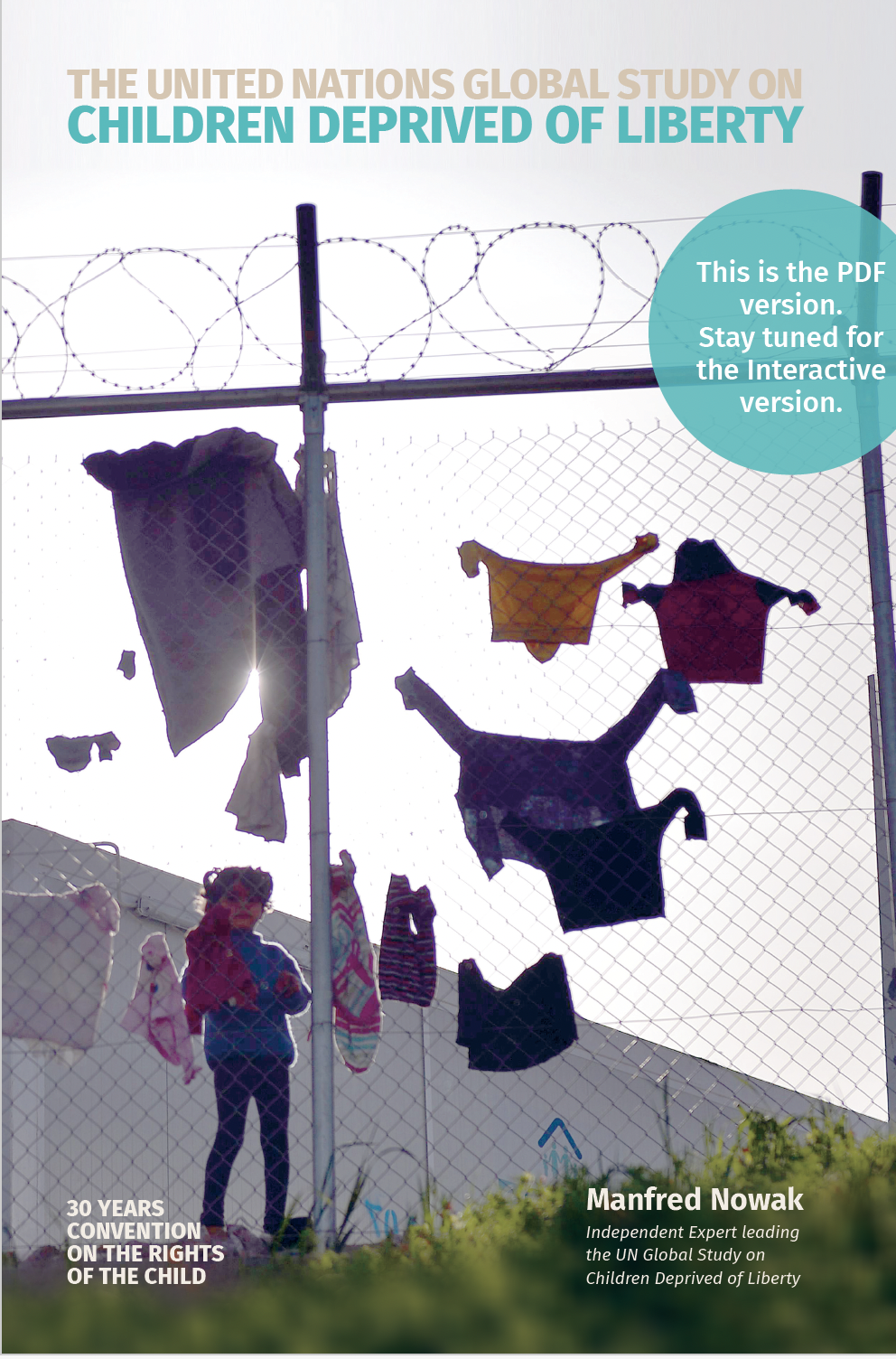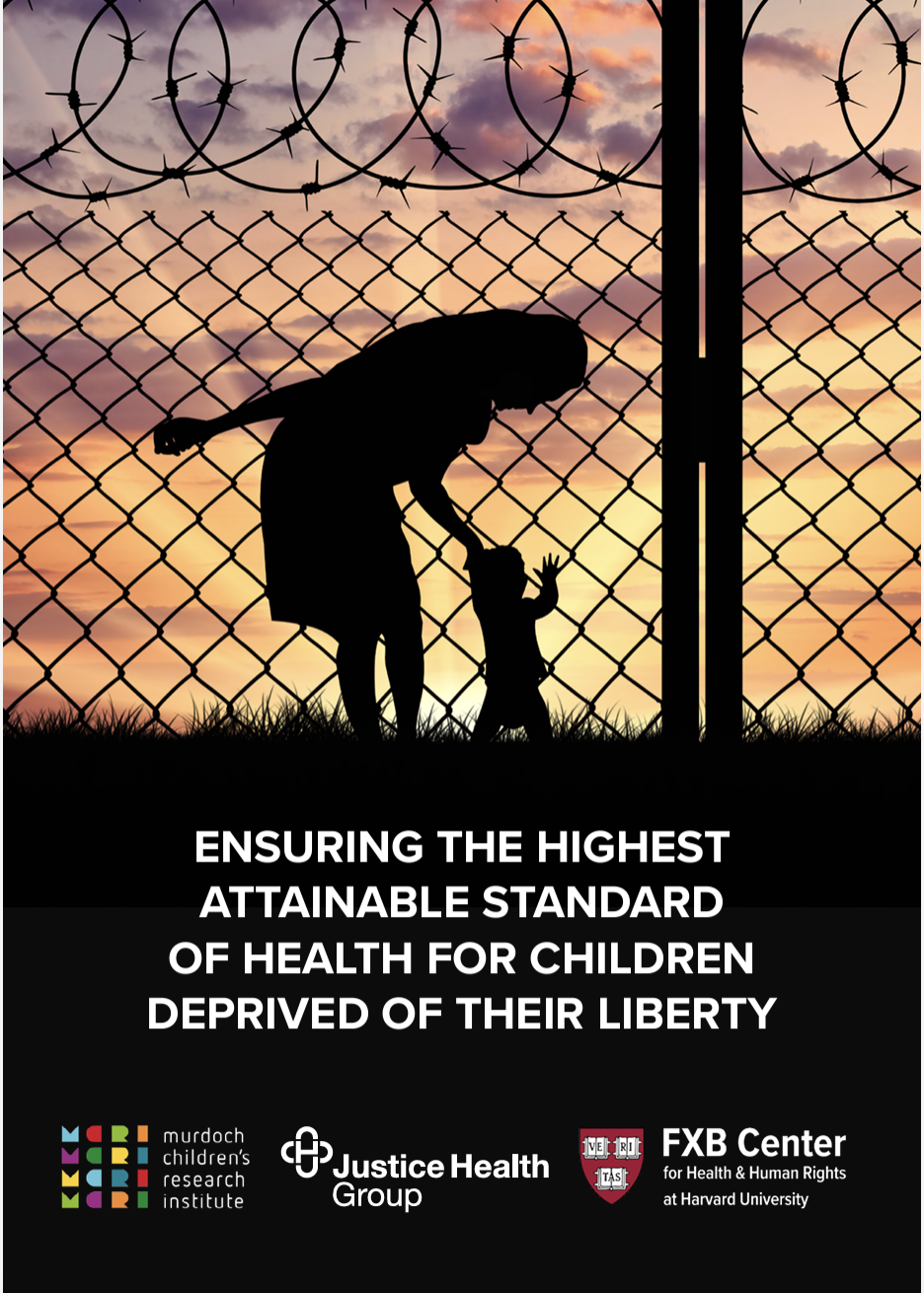
Healthcare standards for children deprived of their liberty
Healthcare standards for children deprived of their liberty
Children deprived of liberty are an invisible and largely forgotten group. Globally, more than 7.1 million children are deprived of liberty each year, including at least 1.4 million in the administration of justice. Each year millions of children are placed in inhumane conditions and in adult facilities, where they may be at risk of violence and sexual assault, acts of torture, and cruel or degrading treatment or punishment. Nonetheless, the physical and mental health of children deprived of liberty, and the impacts of deprivation of liberty on their health and development, had never been the subject of systematic inquiry at the global level.
Led by Independent Expert Prof Manfred Nowak, the UN Global Study of Children Deprived of Liberty was developed to collect data about the situation of children deprived of liberty, assess implementation of applicable international laws and standards, identify good practices, and formulate recommendations for action at a national, regional and international level. Following consultation with stakeholders and with research leaders, it was determined that health should be included in the Global Study as a cross-cutting theme, led by the Justice Health Group.
This project involved a series of rapid, global reviews of the health status of children and adolescents deprived of liberty. The findings were summarised in the Health chapter of the Global Study report, which was presented to the UN General Assembly in 2019. Some of this work was subsequently adapted for a series of papers on the health of children in criminal justice detention, in Lancet Child & Adolescent Health and Lancet Public Health (11 papers in total, including 2 Editorials).
One outcome of the Global Study was establishment of a UN Multi-Agency Taskforce (UNTF), responsible for supporting implementation of the recommendations of the Global Study. With guidance from the UNTF, the Justice Health Group worked with colleagues from the Harvard FXB Center for Health and Human Rights, to critically review minimum standards for healthcare in youth detention globally. Our findings and associated recommendations are summarised in a report published by the Harvard FXB Center, with a preface by the UN Special Representative to the Secretary General on Violence Against Children.
Funding: The Justice Health Group’s contribution to this work recieved seed funding from the Murdoch Children’s Research Institute.
Project team: Prof Stuart Kinner, Prof Rohan Borschmann, Prof Huw Williams, Dr Betony Clasby, Prof Nathan Hughes, Dr Mel Willoughby, Ms Emilia Janca, Ms Annie Carter, Ms Louise Southalan, Dr Cheneal Puljevic, Ms Rakhi Vashishtha; Ms Tess Kelly, Mr Alex Campbell, Prof Jacqueline Bhabha, Dr Jesse Young, Dr Kate McLeod, Ms Lindsay Pearce, Mr Vijaya Ratnam Raman


